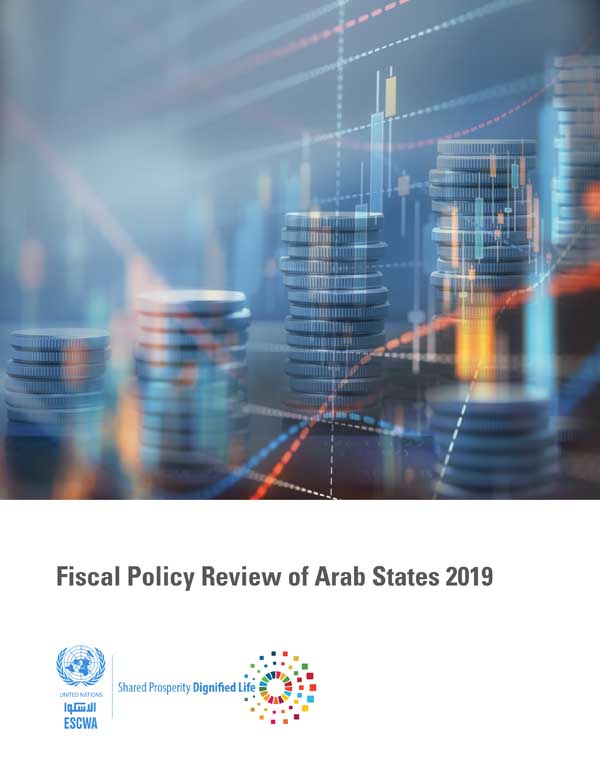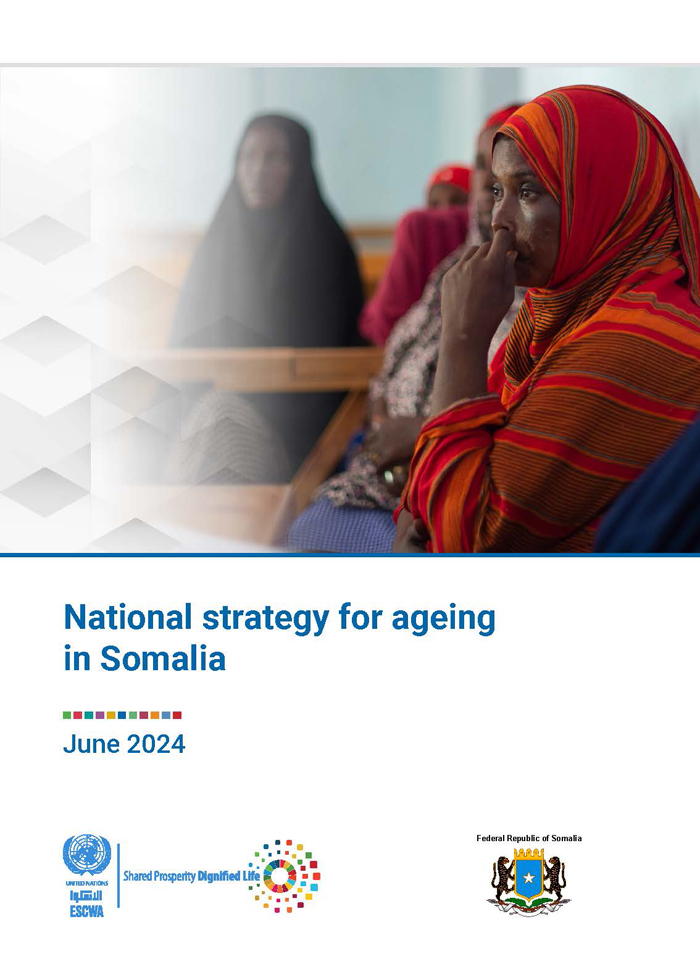
ESCWA Publication: E/ESCWA/EDID/2019/WP.20
Country: Arab region
Publication Type: Working papers
Cluster: Shared Economic Prosperity
Focus Area: Debt and fiscal policy, Financing for development, Inclusive development
Initiatives: Debt Optimization to Enhance Fiscal Space, Social Expenditure Monitor for Arab States, Public finance and inclusive fiscal policy
SDGs: Agenda 2030, Goal 1: No Poverty
Keywords: Fiscal policy, Sustainable development, Tax reform, External debt, Foreign direct investment, Taxation
Fiscal policy review of Arab States 2019
January 2020
This fiscal review is first in the series following the ESCWA 2017 flagship report “Rethinking Fiscal Policy for the Arab Region”. A major focus of this fiscal policy review 2019 is to create a baseline database on tax reforms undertaken by Arab States during 2010 and 2018, covering personal income tax, corporate income tax, capital gains and dividends, property tax, value added tax and general sales tax. The role of tax expenditure provisions and recent subsidy reforms across the region, as part of fiscal consolidation efforts, are discussed briefly in this review as well. The main objective of the review is to assess the efficiency and progressivity of fiscal policy reforms initiated by the Arab States toward expanding their fiscal space. The findings of the review suggest that the Arab region has witnessed significant economic and political shocks and falling oil prices that have a continuous downside effect on economic growth and buoyancy of revenues starting with global economic downturn in 2008 till 2018. It is a decade of losses across the country clusters in the region albeit there are differences among countries within each cluster.
In oil-rich countries, fiscal policy reforms have targeted to diversify revenue base, whereas in the oil-poor middle income countries, the focus of reforms have been to expand the tax base and undertake fiscal consolidation through subsidy reforms. Questions remain, however, regarding the effectiveness and distributional consequences of these fiscal policy reforms as major reforms have targeted indirect taxes rather than through income or wealth tax reforms. The trends in vulnerabilities to debt and external debt, reduced concessional borrowing, and subdued inflow of foreign direct investments to several reforms remain worrisome in terms of expanding fiscal space. Furthermore, low share of development assistance to sectors that impact the achievement of SDGs the most, such as to health, education, water supply and sanitation, and productive sectors, risk economic progress and progress of SDGs in the region, especially in the low-income countries.
Related content
Debt and fiscal policy
, Financing for development
, Inclusive development
,
This fiscal review is first in the series following the ESCWA 2017 flagship report “Rethinking Fiscal Policy for the Arab Region”. A major focus of this fiscal policy review 2019 is to create a baseline database on tax reforms undertaken by Arab States during 2010 and 2018, covering personal income tax, corporate income tax, capital gains and dividends, property tax, value added tax and general sales tax. The role of tax expenditure provisions and recent subsidy reforms across the region, as part of fiscal consolidation efforts, are discussed briefly in this review as well. The main objective of the review is to assess the efficiency and progressivity of fiscal policy reforms initiated by the Arab States toward expanding their fiscal space. The findings of the review suggest that the Arab region has witnessed significant economic and political shocks and falling oil prices that have a continuous downside effect on economic growth and buoyancy of revenues starting with global economic downturn in 2008 till 2018. It is a decade of losses across the country clusters in the region albeit there are differences among countries within each cluster.
In oil-rich countries, fiscal policy reforms have targeted to diversify revenue base, whereas in the oil-poor middle income countries, the focus of reforms have been to expand the tax base and undertake fiscal consolidation through subsidy reforms. Questions remain, however, regarding the effectiveness and distributional consequences of these fiscal policy reforms as major reforms have targeted indirect taxes rather than through income or wealth tax reforms. The trends in vulnerabilities to debt and external debt, reduced concessional borrowing, and subdued inflow of foreign direct investments to several reforms remain worrisome in terms of expanding fiscal space. Furthermore, low share of development assistance to sectors that impact the achievement of SDGs the most, such as to health, education, water supply and sanitation, and productive sectors, risk economic progress and progress of SDGs in the region, especially in the low-income countries.



